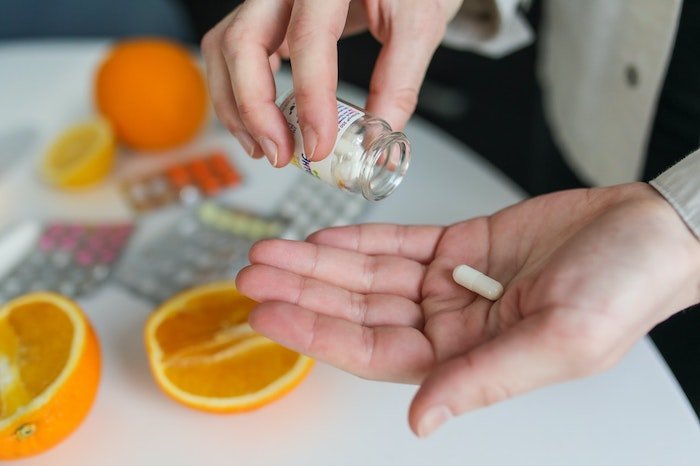Drug & Alcohol Rehab in Sunderland
If you are concerned about a loved one’s use of alcohol and/or drugs, or you have discussed their dependency with them and they are not open to treatment, then an intervention can help.
Often, people who experience addiction feel a lot of guilt, shame and denial when confronted with their dependency, causing them to shy away from treatment.
However, interventions can help a person to realise what help is available to them and to feel less afraid of treatment.
The impact of family and loved ones on treatment should not be underestimated, and interventions can help demonstrate the support from loved ones that many people facing addiction need. [1]
Interventions are best when led by a professional interventionist, as they are trained in how to communicate effectively with people who might not be open to treatment or be afraid to discuss their substance dependency.
Close family members and friends should be present during an intervention, and the process involves the person’s loved ones reading pre-prepared letters expressing their concern and desire for the person to get treatment.
Get alcohol and drug rehab in Sunderland for a wide range of addictions including binge drinking, alcohol addiction, benzodiazepine addiction, Buprenorphine addiction, cannabis use disorder, crack cocaine addiction, ketamine addiction, opioid use disorder, heroin addiction, cocaine dependence or cocaine addiction, any physical dependence or codependency, substance use disorder, and behavioural addictions such as gambling addiction and eating disorders.
What is the Cost of Rehab in Sunderland?

The cost of drug and alcohol rehab in Sunderland will depend on a variety of factors including the type of rehab clinic you are treated at (private or NHS), whether you are inpatient or outpatient and what treatments are best for you.
Addiction treatment on the NHS is free, and both inpatient and outpatient treatment is available, including a variety of therapies. However, funding on the NHS is limited, and therefore it is often difficult to get inpatient treatment, and waiting lists are often between 6 months to 1 year.
Private drug and alcohol rehab in Sunderland can sometimes be covered by health insurance, depending on the company and your contract. This is definitely worth looking into if you are looking at cost effective treatment options.
In the UK the cost of private rehab varies, starting from around £1,000 per week and the average cost being £495 per day.
Most residential rehab stays are recommended to be around 28 days, so prices for an entire stay in a private rehab centre can go from £4,000 to £10,000.
This of course depends on location, and even in Sunderland cost is still dependent on the length of stay, treatments, medications and many other factors. These centres are often well equipped with a range of treatment options and are able to admit patients within 1 week.
At OK Rehab, we offer free advice from a team of non-judgemental professionals, many of whom are in recovery and understand how hard it can be to change your relationship with addiction.
To find out more about rehab in Sunderland, simply reach out to our 24/7, confidential hotline on 0800 326 5559.
Are there Drug and Alcohol Rehab Options Available on the NHS?

There are drug and alcohol rehabilitation options in Sunderland on the NHS, offering a variety of treatments for people of all ages.
These services are financially accessible as they are free and many of them are located in the centre of Sunderland. It is also possible to be referred to private addiction treatment through the NHS.
The NHS is an asset to the UK, offering incredible services to those in need regardless of their financial situation. However, due to underfunding and so many people needing their services, NHS rehab has its drawbacks.
As aforementioned these often have more limited services available, it can be difficult to find funding due to having to meet a strict criteria for treatment and there can be long waiting lists.
Some of the most central NHS drug and alcohol rehab options in Sunderland are:
- The Young Drug and Alcohol Project is a service in Sunderland which offers advice, intervention and support for young people up to the age of 18.
- Change, Grow, Live (CGL) – Wear Recovery is a service for anyone in Sunderland who is struggling with drugs and/or alcohol.
- Northern Engagement Into Recovery from Addiction Foundation (NERAF) offers a variety of services in Sunderland such as support groups and social activities for people struggling with addiction.
Many of these Sunderland addiction treatment cetres accept either self referral or referral by an agency, however a full list of rehabilitation centres in Sunderland and their details are available via the NHS website. [2]
As well as NHS treatment, there are also charities which offer advice and support in Sunderland via telephone, online and in the community such as Addictions North East. [3] [4]
Although services are restricted, you may be able to get other mental health therapies such as counselling and Cognitive Behavioural Therapy (CBT) through the NHS separately as well as medication.
Types of therapy available at a private alcohol rehab include Acceptance and Commitment Therapy, acupuncture, art therapy, cognitive behavioural therapy, dialectical behaviour therapy, drama therapy, Eye Movement Desensitization and Reprocessing, group psychotherapy, motivational therapy, Rational Emotive Behavior Therapy, brief intervention, contingency management, coping mechanisms work therapy, equine therapy, family therapy, group therapy, individual therapy, mindfulness, motivational interviewing, music therapy, and talking therapies.
This can help if you want to seek NHS drug and alcohol treatment and also want support for co-occurring conditions such as anxiety or depression. Just make sure to discuss options and disclose all information regarding your drug and/or alcohol misuse to your GP.
Other free organisations to consider
Below is a list of other organisations that offer free advice for addiction around Sunderland:
1. Wear Recovery | Change Grow Live
Address: 4-6 Mary St, Sunderland SR1 3NH
Telephone: 0800 234 6798
Website: https://www.changegrowlive.org/sunderland/contact-us
2. Turning Point
Address: Bridge House, Bridge St, Sunderland SR1 1TE
Telephone: 01915 108252
Website: https://www.turning-point.co.uk/
3. NERAF
Address: Church Street East, Church St E, Hendon, Sunderland SR1 2BB
Telephone: 01915 148520
Website: http://neraf.org/
You can also reach out to helplines, including Mind UK, YoungMinds, Rethink Mental Illness, Samaritans and Papyrus, SMART Recovery or find an Alcoholics Anonymous, Narcotics Anonymous or Cocaine Anonymous that is near you.
The NHS are also there to help with addiction support.
Other organisations that can offer you help for free include NHS Foundation Trust, Turning Point, We Are With You, National Association for Children of Alcoholics, Change Grow Live, Al-Anon and Alateen.
Rehabs are advised by the American Society of Addiction Medicine and the National Institute for Health and Care Excellence so you are in safe hands with person-centered care.
You may also be offered sober living houses as part of your aftercare after you leave rehab in order to help you maintain your sobriety and help with relapse prevention.
How Long Does Alcohol and Drug Rehab Last in Sunderland?

The length of time you stay in residential treatment in Sunderland varies depending on the person and the treatment they need.
Treatment can last as little as 7 days (often previous residents who have had a relapse or those with mild addictions) or as long as 90 days.
It is highly recommended that anyone seeking residential treatment stay in the Sunderland rehab centre for at least 28 days.
Studies have demonstrated that patients who remain in rehab at least 28 days are more likely to achieve lasting sobriety.
This is likely because this amount of time ensures that following detox, you get a substantial amount of rehabilitation therapy helping you to overcome cravings and withdrawal symptoms. It also ensures that the mind and body can recover substantially from the impact of substances.
However, some patients benefit from a longer course of treatment, and some inpatient facilities can treat patients for up to 3 months.
There are also extended programs which introduce sober living accommodation or halfway houses, where people can stay in a sober environment with others and learn key skills. This is often for people with severe addictions who have undergone rehab and would benefit from learning life skills.
At OK Rehab, we offer free advice from a team of non-judgemental professionals, many of whom are in recovery and understand how hard it can be to change your relationship with addiction.
To find out more about rehab in Sunderland, simply reach out to our 24/7, confidential hotline on 0800 326 5559.
NHS vs private addiction treatments

Whether you choose to enter into private or NHS drug and alcohol rehab in Sunderland, there is support available to help you break free from the cycle of addiction.
To help you decide which type of treatment is right for you, we have put together a list of pros and cons of both NHS and private treatment, so you can be fully informed about your rehab options.
NHS Drug and Alcohol Rehab in Sunderland
Pros
- Treatment is free and you can get full funding on the NHS
- There are several NHS rehab and charity treatment options available
- There is the opportunity to seek further mental health support on the NHS through your GP
- You may be able to get NHS funding for private rehabilitation
- Many free rehab treatment centres are in the centre of Sunderland and therefore very accessible
Cons
- Waiting lists can be as long as 6-12 months
- There can be strict criteria to receive full funding, particularly for inpatient treatment
- Most of the services are outpatient therapies, more suitable for less severe addiction cases
- Due to limited resources, many therapies such as alternative therapies are less likely to be available
Private Drug and Alcohol Rehab in Sunderland

Pros
- Patients are usually admitted with 24 hours – 1 week
- There are more inpatient treatment options available
- Inpatient treatment is likely to be more private and comfortable
- Private rehab has more resources to offer a range of treatments including alternative and holistic therapies and more time with a therapist one-to-one
- Costs are sometimes covered by medical insurance
Cons
- Private rehabilitation in Sunderland can be expensive, with the average cost being £495 per day
- Often not central and therefore harder to get to than NHS and charity rehab centres
If you are curious about whether NHS or private rehab in Sunderland is the best option for you, the OK Rehab team are happy to help talk you through your options.
At OK Rehab, we offer free advice from a team of non-judgemental professionals, many of whom are in recovery and understand how hard it can be to change your relationship with addiction.
To find out more about rehab in Sunderland, simply reach out to our 24/7, confidential hotline on 0800 326 5559.
Inpatient and Outpatient Drug & Alcohol Rehab in Sunderland

There are two types of treatment in drug and alcohol treatment in Sunderland: inpatient and outpatient. The type of treatment you receive will depend on a variety of factors.
Inpatient Treatment
Inpatient treatment consists of a residential stay at a Sunderland rehab centre for a predetermined length of time.
This is usually around 28 days, but may be considerably shorter or longer depending on your needs and the severity of your addiction. During this time, you will live in the residential rehab facility and receive regular treatments such as medication and therapy.
Inpatient treatment is often the preferred rehab option, as you have access to medical support 24/7 and an opportunity to get away from a potentially triggering home environment.
However, outpatient treatment can be right if the person has a more mild case of addiction and/or a strong support network at home.
If a patient, NHS or private, is older, has health problems or co-occurring mental health issues, does not have a social support network at home or is living in an unsafe environment, inpatient treatment is highly recommended – particularly during detox.
This option however, is more readily available in private rehab than NHS due to funding and the number of inpatient spaces available.
Outpatient Treatment

Outpatient treatment is when a patient stays at home rather than in a residential facility, but visits a Sunderland rehab centre for their treatment.
There are different degrees of outpatient treatment, depending on the individual’s needs, with some visiting their local rehab centre every day for a few hours and others only once or twice a week.
There are also part-hospitalisation and intensive outpatient options, where a patient will spend up to 8 hours a day at the centre.
Outpatient treatment can be helpful for milder addiction cases, and for very motivated patients who have a stable home environment with a good support network.
Inpatients will also often have ongoing treatments on an outpatient basis such as group therapy, one-to-one counselling and holistic therapies.
Outpatient services are often used in NHS treatment due to funding, and often in private treatment if a patient wishes to remain at home, has no co-occurring health issues and has a stable home environment.
During the assessment period of your rehabilitation journey, the type of treatment you have, the length of treatment and the frequency of your therapies will be discussed with you.
At OK Rehab, we offer free advice from a team of non-judgemental professionals, many of whom are in recovery and understand how hard it can be to change your relationship with addiction.
To find out more about rehab in Sunderland, simply reach out to our 24/7, confidential hotline on 0800 326 5559.
Alcohol Detox And Rehab In Sunderland

Detoxing from alcohol when physical addiction is present needs to be done carefully and under medical supervision, whether you decide to detox at home or in a rehab centre.
This is because alcohol detox can be very dangerous and even fatal, due to the potential severity of withdrawal symptoms.
When under the supervision of addiction specialists in Sunderland, you can be monitored throughout your detox and prescribed alcohol detox medications to help with the withdrawal symptoms. Some of the common withdrawal symptoms for alcohol detox include:
- Anxiety and irritability
- Nausea
- Vomiting
- Insomnia
- Delirium Tremens (DT’s) – which includes confusion, hallucinations, fever, high blood pressure and rapid heart rate
- Seizures
- Cravings
Medications and professional support during detox ensures that withdrawal symptoms are lessened, your physical and mental health remain stable and the detox process is as safe as possible.
Alcohol detox lasts 7-10 days, however most people find that the withdrawal symptoms become milder after the first 48 hours. Medications such as Librium, Acamprosate and Naltrexone are often given to assist with withdrawal symptoms, this is known as a pharmaceutical detox.
Rehab for Cocaine in Sunderland

Cocaine is a psychologically addictive substance and when detoxing from cocaine, like alcohol, you are likely to experience withdrawal symptoms.
However, unlike alcohol and opiates such as heroin, the withdrawal symptoms of cocaine detox are not as dangerous and not fatal.
Withdrawal symptoms include fatigue, depression, anxiety, suicidal thoughts, restlessness an increased appetite.
These usually begin in the first few hours and over time reduce in intensity, with mild cravings lasting until 10 weeks.
Following detox, you will then go through cocaine rehab in Sunderland which also involves engaging in treatments such as individual and group counselling, peer support groups such as Narcotics Anonymous (NA) and therapy such as CBT.
At OK Rehab, we offer free advice from a team of non-judgemental professionals, many of whom are in recovery and understand how hard it can be to change your relationship with addiction.
To find out more about rehab in Sunderland, simply reach out to our 24/7, confidential hotline on 0800 326 5559.
What is Rehab for Heroin Like in Sunderland?

Heroin, like alcohol, is a physically addictive drug that requires a carefully managed detox. It is also highly recommended to undergo inpatient heroin detox at a local Sunderland rehab centre, so that withdrawal symptoms can be carefully managed by medical professionals.
Heroin detox lasts around 4-10 days, with the onset occurring within 8-24 hours after last use. Withdrawal symptoms however can last up to a month in some cases. [5]
The withdrawal symptoms of heroin detox and heroin withdrawal include nausea, vomiting, insomnia, diarrhoea, sweating, anxiety, changes in heart rate and muscle cramps. [5]
During detox, medications such as Subutex may be used to help reduce the impact of withdrawal symptoms and the likelihood of a patient returning to using heroin.
Following this, as with other drug and alcohol rehabilitation, you will go through treatments such as behavioural therapy and counselling.
You will also receive treatment for any other effects of heroin, such as hepatitis.
Rehab for Cannabis in Sunderland

Cannabis, like cocaine, is a psychologically addictive drug, with around 9% developing a cannabis addiction and around 30% of users having a degree of dependence on the substance. [6]
Although often viewed as harmless or even helpful, cannabis addiction can be very harmful.
Some of the side effects of cannabis use include paranoia, anxiety, fatigue, increased risk of psychotic disorders, respiratory problems, lack of motivation, heart palpitations and depression. When smoked with tobacco, it also carries the risks associated with cigarette smoking.
Withdrawal symptoms of cannabis detox include headaches, cravings, irritability, insomnia or difficulty sleeping, nausea, anxiety and depression.
Most cannabis rehab patients undergo outpatient treatment as the withdrawal symptoms of stopping the drug are not as severe as opioids or alcohol.
Therefore, most patients will benefit from one-to-one counselling, group therapy and also be assessed for comorbid disorders and undergo treatment for those.
What Is Dual Diagnosis for Co-occurring Disorders?

Dual diagnosis refers to a patient who is diagnosed with two different disorders (co-occurring or comorbid disorders) which are both present at the same time.
Often when people are dependent on drugs or alcohol, there is an underlying mental health condition that they are trying to overcome (e.g. drinking alcohol to relax in social settings and avoid the symptoms of social anxiety disorder).
The difficulty is that drugs and alcohol often perpetuate the comorbid disorder in the long term. For some people, the substance they use induces a mental health disorder which they may have a predisposition to develop.
For example in the case of cannabis, although often used to self-medicate for mental health disorders, it has also been shown to induce psychosis and increase the risk of disorders such as schizophrenia. [7]
Assessing for comorbid disorders and managing a dual diagnosis correctly is incredibly important to successful treatment, as comorbid disorders affect one another.
When you go to rehab you will get a full psychiatric assessment by a psychiatrist who will work out if you need psychiatric treatment.
By treating the co-occurring mental health condition, the risk of relapse is lessened as the person no longer needs to either self medicate with substances or be left with an unmanaged mental health disorder caused by substances.
If you are aware of another condition, or suspect you might have an underlying condition, then make sure to highlight this when seeking out drug & alcohol rehab in Sunderland.
At OK Rehab, we offer free advice from a team of non-judgemental professionals, many of whom are in recovery and understand how hard it can be to change your relationship with addiction.
To find out more about rehab in Sunderland, simply reach out to our 24/7, confidential hotline on 0800 326 5559.
The Importance of Relapse Prevention

Relapse prevention is an incredibly important aspect of addiction treatment, and is a key element of drug & alcohol rehab in Sunderland.
When you complete your treatment, or are nearing the end of treatment, having a relapse prevention plan in place provides you with a guide to rely on when you encounter difficulty remaining sober.
Whether it’s cravings, triggers within your environment or perhaps you are thinking a lot about the experiences you had whilst using, a relapse prevention plan ensures that you get support when you need it and know how to manage these difficult post-treatment experiences.
A relapse prevention plan will be created with you near the end of your treatment, and will include sections such as a plan of action for when you experience cravings, tips for when triggers occur, general advice and the contact details of support services you can use when you feel that a relapse might occur.
Relapse prevention plans are unique to the individual and should also explain the process of relapse, and when you might need to seek support so that relapse is prevented as soon as possible.
What Addiction Aftercare and Support Services are Available in Sunderland?

Once you leave a drug & alcohol rehab in Sunderland, you are certainly not alone. Aftercare is an important part of treatment and alongside a relapse prevention plan, other aftercare services are available. Some of the most commonly used aftercare services are:
- Alcoholics Anonymous and Narcotics Anonymous (AA and NA) are free community support groups where people in recovery come together to share experiences and support one another. They follow the 12-step recovery program and have groups in Tyne and Wear and Sunderland. You will try to give yourself over to a higher power in order to help you get sober.
- SMART Recovery stands for Self-Help Addiction Recovery and helps people manage their own sobriety. They use methods such as CBT to guide people through their own individual 4 point programme to live a healthy life.
- Al-Anon Family Meetings are a support service for anyone affected by a family member’s addiction to alcohol. Addiction affects the whole family so these meetings can provide help for others affected by addiction.
- Outpatient Treatment from the Drug and Alcohol Team in Sunderland can provide ongoing support through helplines, referrals to charities, local Sunderland support groups and other outpatient services.
If you want to begin your journey of recovery today, then get in touch with OK Rehab and we can talk you through all of the options for drug & alcohol rehab in Sunderland available to you.
The first step is the hardest, but by exploring what drug and alcohol rehab options there are in Sunderland, you are one step closer to recovery. All of the drug and alcohol rehabs have to be registered and audited by the Care Quality Commission (CQC).
At OK Rehab, we offer free advice from a team of non-judgemental professionals, many of whom are in recovery and understand how hard it can be to change your relationship with addiction.
OK Rehab also offers our rehab services across a variety of locations within Sunderland, including Seaham, Washington, Jarrow, South Shields, North Shields, Felling, Chester-le-Street, Wallsend, Tyne and Wear, Leeds, Bradford and Newcastle Upon Tyne and Lincoln.
To find out more about rehab in Sunderland, simply reach out to our 24/7, confidential hotline on 0800 326 5559.

References
[1] Dennis C. Daley (2013) ‘Family and social aspects of substance use disorders and treatment’, Journal of Food and Drugs Analysis, https://www.ncbi.nlm.nih.gov/pmc/articles/PMC4158844/
[2] NHS, Drug Treatment Services in Sunderland, https://www.nhs.uk/service-search/other-services/Drug-treatment-services/Sunderland/Results/98/-1.384/54.907/340/20629?distance=25
[3] Mind, Recreational Drugs, Alcohol and Addiction, https://www.mind.org.uk/information-support/types-of-mental-health-problems/recreational-drugs-alcohol-and-addiction/drug-and-alcohol-addiction-useful-contacts/
[4] Addictions North East, https://www.addictionsnortheast.com/
[5] World Health Organisation (2009) Clinical Guidelines for Withdrawal Management and Treatment of Drug Dependence in Closed Settings, https://www.ncbi.nlm.nih.gov/books/NBK310652/
[6] Nora D. Volkow, M.D (2020), ‘Cannabis (Marijuana) Research Report’, National Institute on Drug Abuse, https://nida.nih.gov/publications/research-reports/marijuana/marijuana-addictive#:~:text=Those%20studies%20suggest%20that%209,start%20using%20in%20their%20teens.
[7] Carsten Hjorthøj et al. (2019) ‘Annual incidence of cannabis-induced psychosis, other substance-induced psychoses and dually diagnosed schizophrenia and cannabis use disorder in Denmark from 1994 to 2016‘ , Cambridge University Press, https://www.cambridge.org/core/journals/psychological-medicine/article/annual-incidence-of-cannabisinduced-psychosis-other-substanceinduced-psychoses-and-dually-diagnosed-schizophrenia-and-cannabis-use-disorder-in-denmark-from-1994-to-2016/DE4B82C67CA63E9F28AFC7D94D92B779





